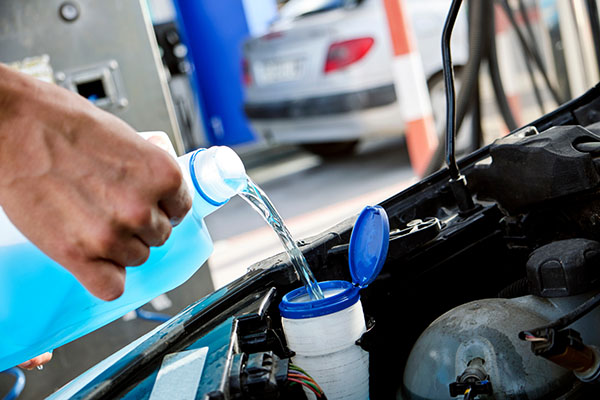
Your car's radiator is a vital component of its cooling system, helping to regulate engine temperature and prevent overheating. However, like any other part, the radiator can have issues over time. By recognizing these signs early on, you can address radiator problems promptly, ensuring optimal engine performance and preventing costly repairs. That's why you should continue reading and make sure to remember these easy-to-spot sights!
1. Rising Engine Temperature
One of the first indicators of a radiator problem is a consistently rising engine temperature. If you notice that your temperature gauge is creeping into the red zone or that the engine is running hotter than usual, it's a clear sign that the radiator may not be effectively cooling the engine. This can be caused by a variety of issues, including a clogged radiator, coolant leaks, or a malfunctioning thermostat.
2. Leaking Coolant
Visible coolant leaks are a telltale sign that your radiator needs attention. If you notice puddles of bright green, yellow, or orange fluid underneath your vehicle, it's likely coolant leaking from the radiator or its associated hoses. Coolant leaks can occur due to cracked or damaged radiator tanks, worn-out hoses, or loose connections. Addressing these leaks promptly is crucial to prevent engine overheating and potential damage.
3. Low Coolant Levels
Regularly check your coolant reservoir to ensure it maintains the proper level. If you find that the coolant level is consistently low despite regular top-ups, it may indicate a coolant leak within the radiator or elsewhere in the cooling system. Low coolant levels can lead to inadequate cooling and increased engine temperature, potentially causing irreversible damage if not addressed promptly.
4. Rust or Corrosion
Inspect the radiator for signs of rust or corrosion. Over time, exposure to heat, moisture, and contaminants can cause the radiator's metal components to corrode. Rusty spots or visible corrosion on the radiator fins or tanks can impair its cooling efficiency and lead to leaks.
5. Overheating in Stop-and-Go Traffic
If your vehicle tends to overheat in heavy traffic or during prolonged idle periods, it could indicate a radiator problem. Stop-and-go traffic limits the airflow to the radiator, making it work harder to dissipate heat. Issues such as a malfunctioning cooling fan, clogged radiator fins, or a faulty thermostat can contribute to overheating in these conditions.
6. Strange Odors or Steam
Unusual smells or steam emanating from the engine compartment can indicate a radiator problem. A sweet or maple syrup-like smell may suggest a coolant leak, while steam escaping from the radiator cap or grille can signify an overheating issue.
Cooling Issues? Car Overheating? Bimmer Motor Specialists is here to help!
Our team invites you to the shop for any car-related headaches. Drop by, and we will take a look.